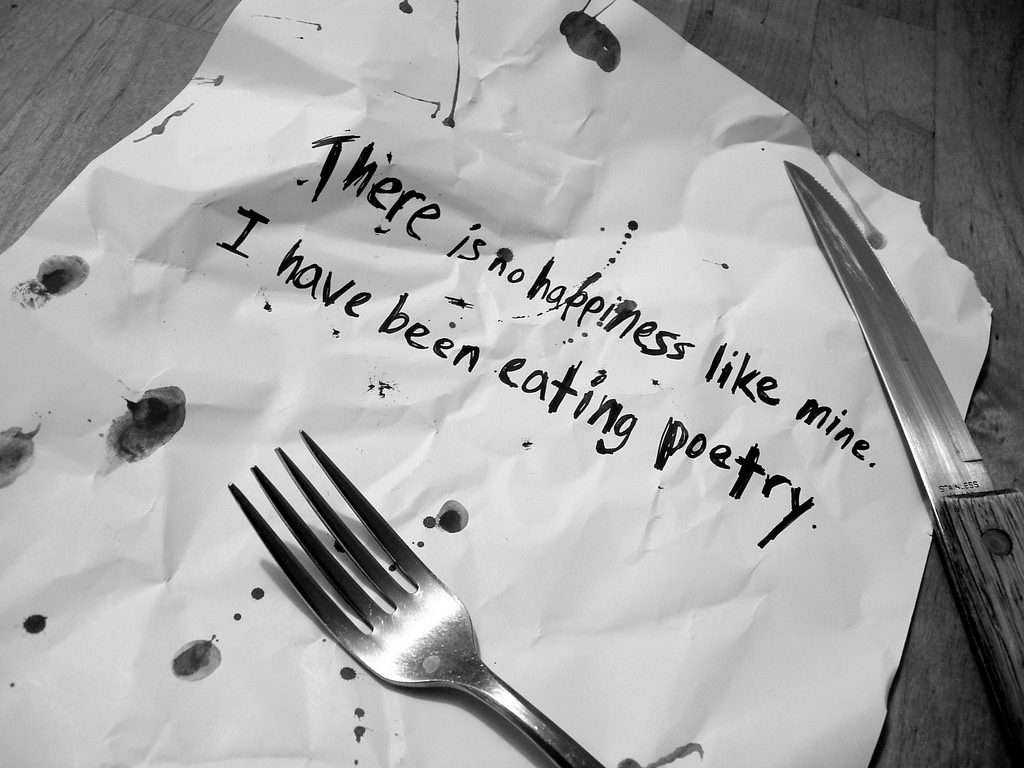This poem by prominent American poet Mark Strand (1934-2014) was just delicious in its simplicity. I quote from the website of Poetry Foundation:
Eating Poetry
Ink runs from the corners of my mouth.There is no happiness like mine.I have been eating poetry.The librarian does not believe what she sees.Her eyes are sadand she walks with her hands in her dress.The poems are gone.The light is dim.The dogs are on the basement stairs and coming up.Their eyeballs roll,their blond legs burn like brush.The poor librarian begins to stamp her feet and weep.She does not understand.When I get on my knees and lick her hand,she screams.I am a new man.I snarl at her and bark.I romp with joy in the bookish dark.
Strand is known for his fine literary language, which won him a Pulitzer Prize for poetry. In this poem, the very first image with the ink running from the corners of his mouth evokes vampires who have been eating poets, not poetry. Could he not wipe his mouth clean with an handkerchief? Or has he eaten the handkerchief as well, because somebody wrote a poem on it? It’s a nicely silly image, the old poet in the library. When he introduces the librarian and thus takes the nonsense seriously, it’s a fun effect. We see the sad lady who doesn’t know how to ‘handle’ (her hands are in her dress) the situation.
Enter the dogs. Alright, now things are getting serious. Some bloodhound gang has smelled what is going on and is coming up. With the poems gone, they have nothing to fear here. Or are they friendly dogs? The rolling eyeballs of the dogs and their blond legs burning ‘like brush’ are visually powerful, but I refuse to read anything biblical in the burning brush.
Of course the librarian doesn’t understand: This is surrealism! And en passant Mr. Strand has turned into a dog himself, or thinks he has, because he still has knees. It scares the hell out of her. And let us just smile about the imagery, and withold a pompous symbolic interpretation, in which the absence of poetry turns us into animals. The final lines are well crafted: snarl – bark – dark. What is a bookish dark and why is it so joyful for Mark? Is it simply because he has literally incorporated the poems, or because the absence of the poems clears the way for other literary forms (Strand did doubt his own poetry and he has tried other formats).

One thought on “Reading: Eating Poetry by Mark Strand”
Comments are closed.